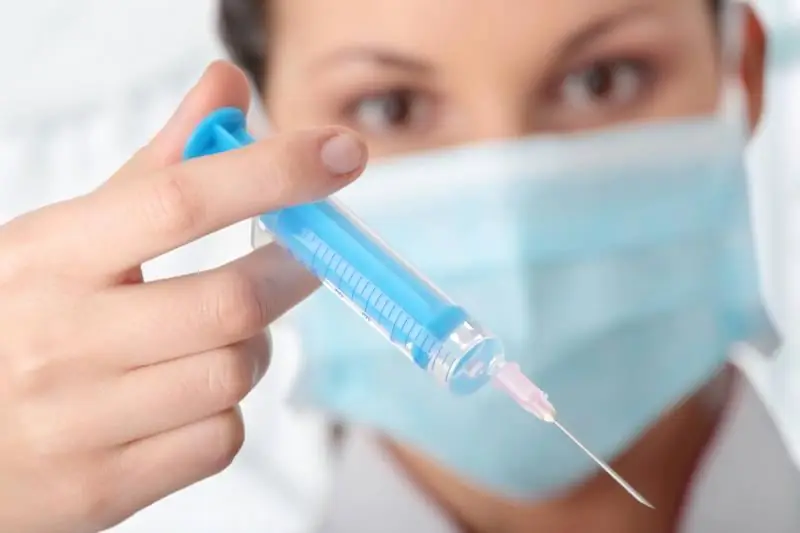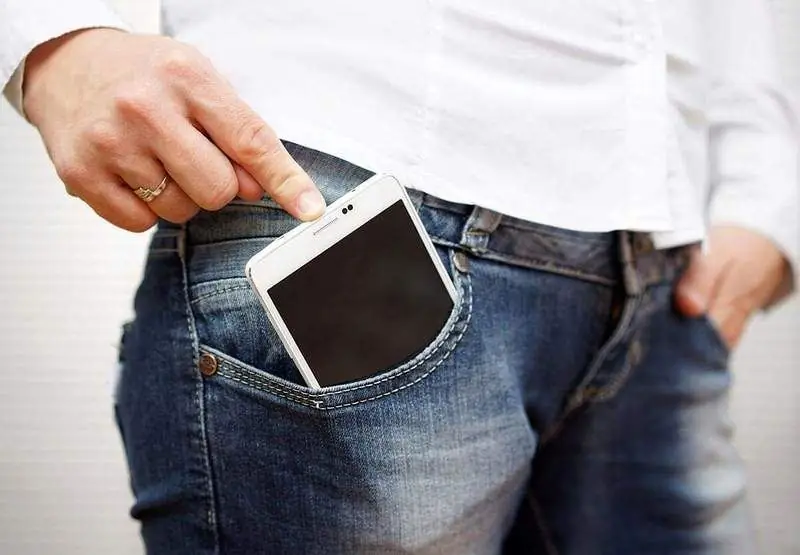
Table of contents:
- Author Bailey Albertson albertson@usefultipsdiy.com.
- Public 2023-12-17 12:53.
- Last modified 2025-01-23 12:41.
Why it is impossible to wet the vaccination site and why violation of the rule is dangerous

Usually, the setting of the vaccine does not cause negative reactions of the body, however, in order not to provoke a deterioration in the patient's well-being, doctors give recommendations on adherence to the regimen after immunization. So, one of the rules is a temporary refusal to swim, so patients have doubts whether it is possible to wet the injection site at all.
Reasons for banning bathing after vaccination
A common adverse reaction to many vaccinations is a temporary rise in temperature, which is why doctors recommend not taking a bath for 24 hours. In case of heat, hot water can provoke an even greater increase in body temperature, and cold water can lead to spasm of skin vessels and heating of internal organs. Often, concomitant reactions are caused by vaccines based on attenuated or live viruses. At the same time, vaccination with an inactivated drug is not accompanied by unpleasant symptoms, and in a day you can already take a bath.

Fever is a common body reaction to a vaccine
If a person does not have an increase in body temperature after vaccination, is it possible at least to wet the injection site? Doctors see no prohibitions in taking a non-hot shower and washing the body, if the following rules are observed:
- the water should not be hot;
- the vaccine injection site should not be rubbed with a brush, washcloth, or a bath broom.

Redness of the injection site may be caused by dirt or infection while bathing
High temperatures and mechanical impact on the injured area can trigger the development of the inflammatory process. The injection site is a damage to the initial integrity of the tissues, and even despite the small size of the needle from the syringe, the wound is a microtrauma. Increased circulation caused by fever or blood flow from friction and rubbing can cause redness and irritation of the skin. For the same reason, after washing, the vaccination site does not need to be rubbed with a towel, but only slightly to absorb moisture.

After vaccination, a temporary weakening of immunity occurs, which causes a rapid development of the inflammatory process at the site of skin injury
Therefore, the recommendations of doctors are fully justified - after vaccination, it is best not to wet the injection site. You should not visit the bathhouse and the pool, as well as overheat while walking, causing increased sweating and increasing the likelihood of the onset of the inflammatory process. In addition, many doctors believe that contact of the vaccination site with water can lead to an allergic reaction.
I have always been in charge of administering vaccines to my children and following the recommended vaccination schedule. To avoid the development of local reactions on the skin, I recommend not only refusing to take a bath after immunization, but also avoiding any contact with the injection site for at least a day. So, I noticed that if the injection site does not come into contact with water and clothing on the child, it is not sealed with a plaster or combed, then the development of side effects on the skin is unlikely.
Video of Dr. E. O. Komarovsky: what actions to take after vaccination
Depending on the type of vaccination, the recommended periods of abstinence from bathing vary from one to three days. In order to avoid harm to your own body, the best way out is to follow the instructions of doctors and avoid contact with water.
Recommended:
Why You Can't Sleep With Your Phone And Carry It In Your Pocket, Including For Men

Harm from the phone in your pocket. Is it possible to sleep with the phone. Effects of radiation on health
Why You Can't Why You Can't Wash Floors On Friday: Signs And Facts

Why you can't wash floors on Friday: signs and superstitions. The opinion of the mystics and Orthodoxy
Why You Can't Go To Bed With A Wet Head

Can you sleep with a wet head: facts and misconceptions
Why You Can't Dye Your Hair During Your Period: Signs And Facts

Why you can't dye your hair during your period. What are the consequences of this procedure
Why You Can't Say Thank You In Prison, Bathhouse, Christians And Other Situations

When and why you can't say “thank you”: 6 situations (Christians, in prison, etc.)
